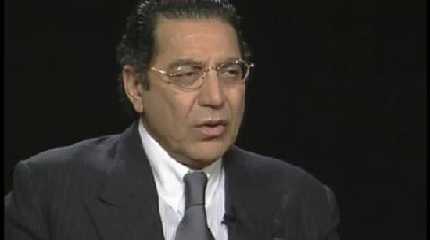
UNITED NATIONS, Feb 21 (APP): Pakistan has called for addressing the root-causes of conflicts, including the use of force, foreign intervention, occupation, xenophobia, Islamophobia and hate speech as well as poverty, inequality, and exploitation, while commenting on United Nations Secretary General’s “New Agenda for Peace” in a UN panel.
Participating in the discussion on the agenda that the UN chief unveiled last September, Ambassador Munir Akram said it did address a number of relevant existing and emerging challenges, but its diagnosis of and prescriptions for the current international threats to peace and security were “incomplete”.
“The principal threats to international peace and security- as so visible today – are caused by inter-state disputes,” he told delegates on Monday at a session devoted to the UN Secretary General’s ‘Our Common Agenda’, a landmark new report, that calls for, among other elements, the renewal of multilateralism.
“We should continue to rely on the universal and consistent application of the principles of the UN Charter – non use of force, respect for the sovereignty and territorial integrity of states, non-interference in their internal affairs, self-determination of peoples – to preserve and build international peace and security and provide equal security to all states. The expansion and proliferation of military alliances to promote or preserve military dominance, or to resist it, is not the route to global or regional peace and security.
“The Secretary General can do much more to promote international peace, especially by utilizing his authority under Article 99 of the Charter,” the Pakistani envoy added. (Under Article 99, the Secretary General is authorized to warn formally the Security Council about new threats to international peace and security.)
“The six ‘core’ areas identified for the new Agenda for Peace are neither core nor comprehensive,” Ambassador Akram pointed out.
“To respond to current international threats, the UN must first focus on: upholding respect for the Charter; promoting peaceful resolution of the disputes and addressing the-root-causes of conflicts, including the use of force, foreign intervention, occupation, xenophobia, Islamophobia and hate speech as well as poverty, inequality, and exploitation.”
To address the “strategic risks”, the Pakistani envoy said a new consensus on disarmament should be evolved, based on the agreed principles that responds to emerging realities and promotes equal security among all states – large and small – and also eliminates the discrimination & double standards.
“We believe that the OEWG (Open Ended Working Group) on Cyber Security (2021-2025), as a UN mechanism with a universal membership, is well placed to address the challenges in the field of ICTs (information and communication technologies).”
The clear gaps in the international legal regime governing the use of outer space need to be addressed through a comprehensive treaty on Prevention of an Arms Race in Outer Space (PAROS) negotiated in the Geneva-based Conference on Disarmament, he said.
With regard to the Security Council reform, Ambassador Akram said adding new permanent members would further deepen the paralysis in the 15-member Council, and result in the creation of “new centers of privileges”, contrary to the principles of sovereign equality of UN member states.
For the universal promotion and preservation of human rights, he stressed the need to: end polarization and politicization of human rights; eliminate double standards; promote implementation of the right to development including through a binding international convention; follow a cooperative approach based on principles of non-discrimination and genuine dialogue; promote the UPR (Universal Periodic Review) as a state-led peer process, which is not exploited through partisan pressures; and promote accountability for human rights violations, especially in situation of foreign occupation.




